
OR
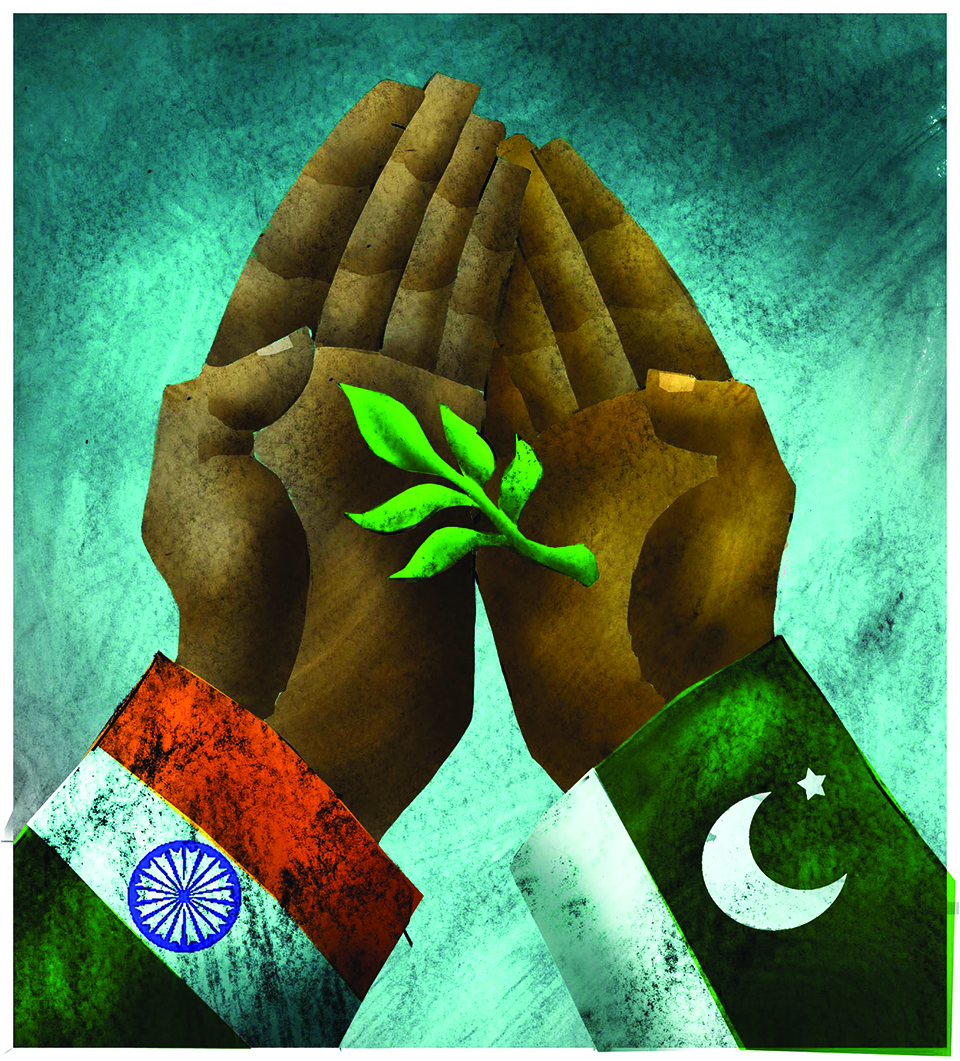

Poorna Kanta Adhikary
The author is President of Institute for Conflict Management Peace and Development (ICPD), Kathmandunews@myrepublica.com
More from Author
India and Pakistan should engage in dialogue with or without external mediation to find lasting solution of Kashmir problem
When I was in Pakistan in 1974 as UNESCO consultant and worked with high authorities of Pakistan Government, they told me about their identity crisis. After having lost Eastern part in 1971, they felt as if they lost their South Asian identity and because of Islam they wanted to associate with the Muslim block countries of West Asia and Middle East. Then they propagated the study of Quran and Arabic in the schools through Madrasas to be accepted better by the Muslim world.
Benazir Bhutto had then come up with the idea of Islamic bomb that he wanted to produce with financial support from the rich Muslim nations. This strategy did not work for Pakistan as these countries favored India to Pakistan because there were more Muslims in India than in Pakistan and they had more socio-economic relations with India than with Pakistan. And they had no reason to ally with Pakistan at the expense of their ongoing relationship with India. This was the situation then and it is still the same.
Bhutto’s interest was interpreted as a design to match a scarecrow in the form of an atomic bomb that India had already exploded and the Pakistanis were so much terrified and nervous that they felt as if an Indian bomb would fall at any time over their heads and they badly needed a cover. In fact, atomic bombs are simply scarecrows that nobody in this world can afford to use against any other. I could then sense the fragility of both Baluchistan and then NWFM (presently called Pashthunkhwa). Many people there had a feeling that the partition of the Indian sub-continent was enforced upon them and was not their choice.
On August 5, Narendra Modi-led government of India abrogated Article 370 (Annex 35A) of the Indian Constitution and stripped the special status of India-administered Jammu and Kashmir. The new arrangement separates Ladakh from them and brings them as two new states of India under the federal rule. Modi has fulfilled the promise he made during the election. Around 70 percent Indians are said to be supporting Modi’s Kashmir move. This has broken the long status-quo in Kashmir and it is natural for the countries in the world to react. As Pakistan considers Kashmir as the vein of its neck, its quick reaction seems just natural. However, from the peace-conflict point of view, it has created a new geopolitical condition that forces people to think about what Kashmir can or will bring next in this part of the world.
What next?
A couple of scenarios could be thought through. First, the conflict between India and Pakistan will escalate with increased incidences of terrorism in India. It will even trigger occasional warfare between the two nations. But there is also the possibility of transformation of conflict between India and Pakistan by building a peace that allows them to retain their captured territories recognizing LOC as the international border by fostering increased collaboration among the South Asian nations together with North-West Asia, West Asia, South-East Asia and China. This could also help make Asian Age of 21st century.
The first scenario is risky. There is likely to be a protracted conflict between India and Pakistan whereby there will be increased strikes by urban guerrilla both within Kashmir and the rest of India by Islamic extremists. In India, it could fuel Hindu nationalism of Rastriya Swayamsevak Sangh (RSS) that could move into Kashmir Valley to retaliate with Islamic extremism. In this case, India will try to continue to isolate Pakistan from South Asia ultimately replacing SAARC by BIMSTEC. Although regional cooperation is desperately needed in this region, for which SAARC was established, the Indo-Pakistan relation has been a significant factor in making and unmaking of the SAARC since its inception.
The Indo-Pakistan conflict will transform Kashmir into a battlefield. Kashmiri people will suffer the most and it will also erode the prospects of South Asian development as a whole. This is not a desirable scenario for anybody. If a war breaks out between India and Pakistan, nobody will take responsibility for that.
For the second scenario to come true, India and Pakistan should think cool and engage in dialogue. The world will support this approach. China and India—despite having border disputes—have learned to live with each other and have socio-economic and cultural cooperation. China and Pakistan are in good neighborly relationship and economic cooperation including through Belt and Road Initiative (BRI). The West, particularly the US, seems to be exhausted with the protracted war in Afghanistan and may opt to get out of it as it did in Vietnam.
In this context, the present anti-India rhetoric in Pakistan and its effort to take the case to UN Security Council are only temporary phenomena designed to ventilate the anger. Pakistan has no interest, nor capacity, to fight another war with India. The previous two wars on Kashmir have been futile and the last one in East Pakistan was a humiliating defeat for Pakistan. Geo-political conditions are simply not in favor of Pakistan. The US has already supported the revocation of Article 370 by calling it an “internal affair” of India. Russians are strongly behind India. France and UK are not in a position to take sides.
As for China, although it has expressed disapproval of India’s action as it has maintained its claim over Ladakh, it should be in no mood either to fuel conflict in this region. That is why it asked both India and Pakistan to observe restraint and United Nations Security Council closed meeting has also suggested the two countries to resolve the issue bilaterally.
Pakistan’s attempt to take Kashmir issue to UN Security Council reminds me of the situation of the breakaway of East Pakistan in 1971. I observed the Council debate on Indian military intervention in East Pakistan. It ultimately helped the secession of Bangladesh.
Although the US was in favor of Pakistan, it could not take any strong position as the overall American public opinion was in favor of Bengali people who suffered under Pakistan. Both China and Soviet Union were blaming each other on certain bilateral issues. British and French were silent observers and Soviet Union had a veto in favor of India. Superpowers of the time turned deaf ears to desperate cries of Julfikar Ali Bhutto. In fact, I have not seen anybody in such a desperately hopeless situation as Bhutto was at the time.
So even if the UN Security Council is to hold an open discussion on Kashmir the result is not going to be any different from 1971, for China and the US have other issues to think of: Trade war, Hong Kong protests and so on. If Imran Khan goes for UN option, he may have to face the same fate as Bhutto.
The majority of Indians had been waiting for what Modi did on August 5. Voice of opposition both in the streets and the parliament is weak and feeble.
Pakistan, on the other hand, is in a very fragile situation economically and politically. The US is not going to entangle itself in Kashmir. Economically and militarily the US wants to be closer to India, which could be instrumental to contain China. China, on the other hand, has its own eggs to fry within its own territories and is in no position to favor any country at the expense of its relationship with India. The West Asian nations including the Arab world cannot afford to support Pakistan at the cost of India. Even Saudi Arabia which has had strong ties with Pakistan and bailed it out recently from its economic woes is reluctant to support Pakistan at the cost of India with which it has much bigger stakes.
Once India provides opportunities for employment and socio-economic development, people of India-occupied Kashmir will stop protesting. With the central government support, people from other parts of India, including the former Kashmiris, will flock to Kashmir Valley to open up new enterprises. Then the original idea of the plebiscite as proposed by the UN back in 1948 will soon become obsolete.
Given the determination of Modi, he can accomplish this task within his current tenure and if he does, it will secure his third term as well.
Peace for Kashmir
India and Pakistan should engage in dialogue with or without external mediation to find a lasting solution to the Kashmir problem. This will be in the interest of South Asia. Then only SAARC will have a meaningful role to play in South Asia as EU has been in Europe. The countries of Europe who fought several wars in the past including the two World Wars are joining hands together as they could not stand alone in this competitive world. Many countries in the world have already come together in some form of regional cooperation. South Asia should not remain an exception.
When I traveled extensively in Europe during the 1970s and 1980s and had to obtain a visa for each country except West Germany to enter, I could not imagine then with a single Schengen visa after 1990 one can travel in 26 countries of Europe and their citizens could just do that freely with an identity card. Why cannot this happen in South Asia? It will be possible if India and Pakistan will learn to leave in peace.
The divided Kashmiri families can also meet their brothers and sisters in and across their own land and in their own homes. In this scenario, Pakistan will stand to gain in the long run as its huge expenses in defense can be diverted in irrigating the vast land of Indus Valley that can feed not only Pakistanis but many in this region.
During my few visits to Pakistan in the 1970s and 1980s, I had seen some possibilities to resolve the Indo-Pakistan issue. These possibilities did not materialize because Pakistani leaders were powerless. Imran Khan should demonstrate the capability to think out-of-the-box to help bring peace in the region.
The author is President of Institute for Conflict Management Peace and Development (ICPD), Kathmandu
You May Like This
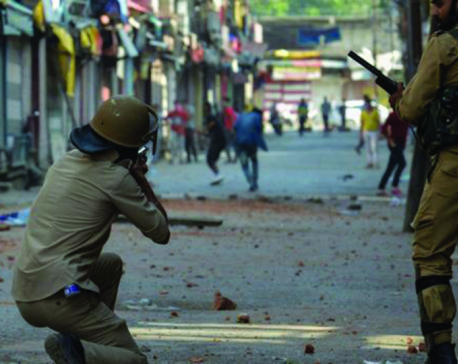
Kashmir will rise
Abrogation of Article 370 marks the dawn of real politics in Kashmir. In the new era, Kashmiris can enjoy free... Read More...
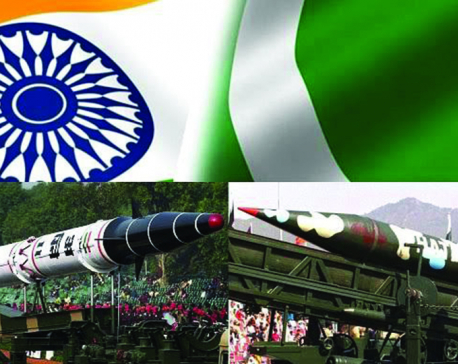
Under nuclear shadow
Unless Kashmir issue is amicably settled, South Asia will continue to remain under a looming shadow of nuclear war ... Read More...
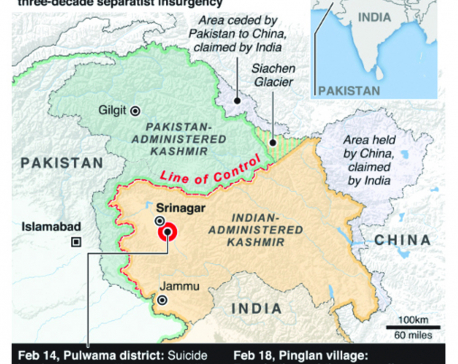
Infographics: Tensions escalate in Kashmir
Tensions between nuclear-armed neighbors Indian and Pakistan are mounting following the deadliest militant attack in Kashmir’s three-decade separatist insurgency. ... Read More...


Just In
- Sunkoshi-Marin Diversion Project’s tunnel construction nears completion, breakthrough scheduled for May 8
- Govt tightens security arrangement for Third Investment Summit 2024
- Pesticide residue found in vegetables in Nepalgunj
- Aam Janata Party and Samajwadi Jana Ekata Party merge
- 1,600 participants confirmed for Nepal Investment Summit
- Ilam-2 by-elections held peacefully, vote count likely to start tonight
- NEA schedules five-day power cut across Kathmandu Valley for underground cable installation
- Hundreds of passengers including foreign tourists in distress as poor visibility halts flights to and from PRIA







-1200x560-wm_20240427144118.jpg)




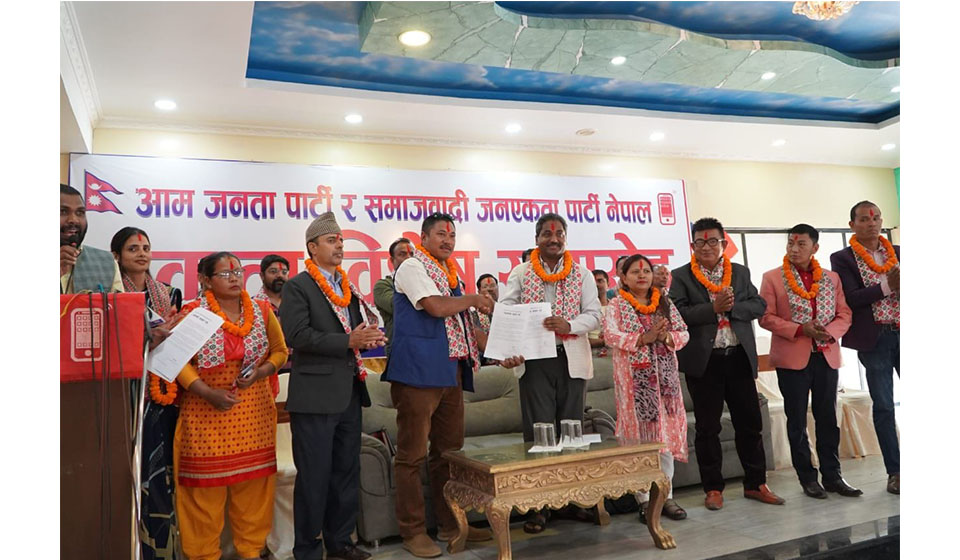

Leave A Comment